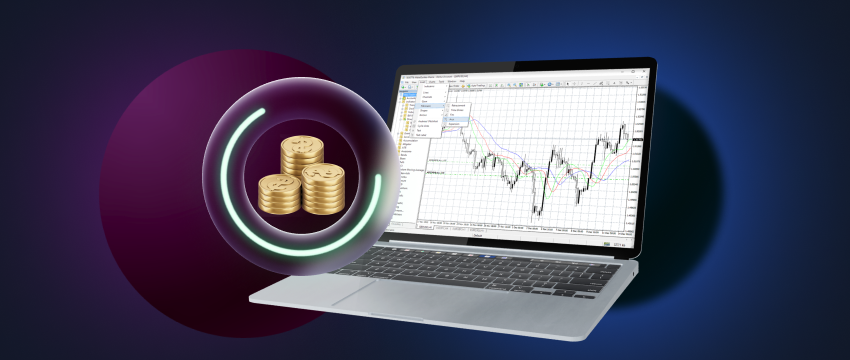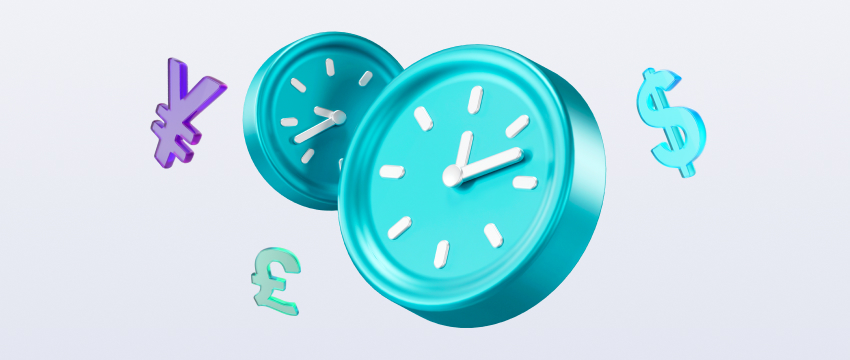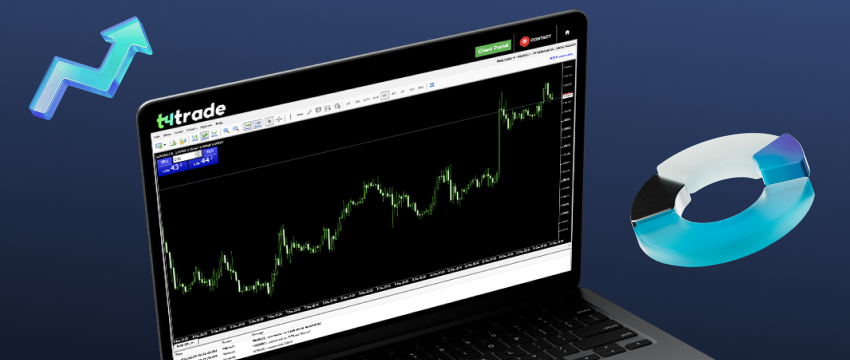In short, a forex currency trader is an individual who seeks to make a profit through the speculative buying and selling of currencies in the foreign exchange market. Forex currency traders can be individuals, financial institutions, banks, hedge funds, etc. Even governments may engage in forex trading. In this blog, we’ll explore the key aspects of the role of a trader.
Trade currencies against each other
Forex traders trade currency pairs, i.e., the currencies of two countries. What this means is that they trade one currency for another in an attempt to profit from the exchange rate.
Some of the most commonly traded currency pairs are:
- EUR/USD (Euro/US dollar)
- USD/JPY (US dollar/Japanese yen)
- GBP/USD (British pound/US dollar)
- AUD/USD (Australian dollar/US dollar)
- USD/CHF (US dollar/Swiss franc)
- USD/CAD (US dollar/Canadian dollar)
Every currency pair is comprised of a base currency (the first currency on the left) and a quote currency (the 2nd currency on the right). The price of a currency pair typically refers to how much quote currency is needed to buy one unit of base currency.
Speculate future price movements
Forex trading is highly speculative. This means a forex trader speculates about the price movement of a particular financial instrument, e.g., a currency pair, and then either takes a long or short position. In other words, a trader will buy an asset in the anticipation that its price will rise, and sell the asset if they predict that its price will drop. The speculative nature of forex trading is characterized by short-term transactions that come with considerable risk. This makes the forex market an incredibly active space, which oftentimes goes through periods of increased volatility and aggressive price fluctuations, leading to substantial losses.
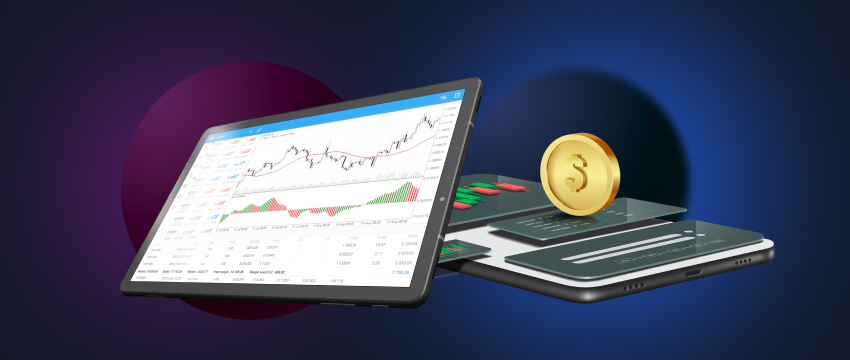
Make use of leverage
Many traders will opt to use leverage to be able to open larger positions or amplify trading opportunities. They can do this, regardless of their account balance, to increase the potential for maximizing profits. However, high leverage ratios can lead to losses exceeding the initial investment. The volatility of the forex market can further exasperate risk due to rapid and oftentimes unexpected price fluctuations in currency prices. As a result, forex traders must adopt proper risk management strategies in order to safeguard their funds.
Adopt risk management techniques
As we have already mentioned, forex trading is an incredibly risky endeavor and requires well-planned strategies to protect one’s money. One of the key ways a forex trader does this is by adopting various risk management techniques into their trading strategies. The most popular of these include stop-loss and take-profit orders:
- A stop-loss order automatically closes a position when the price of a specific asset reaches a predefined price level. This enables a trader to manage their exposure to risk and better protect themselves from significantly larger losses.
- A take-profit order is similar to a stop-loss order, except a position is automatically closed when a particular profit level is reached.
Another risk management tool commonly used is the trailing stop-loss order. As the price of an asset rises, the trailing stop moves upwards too. At such a time that the price stabilizes or decreases, the updated stop-loss order will stay at the level it was adjusted to. In this way, the trader is better protected from losses.
Apply technical and fundamental analysis
Two of the most popular forms of analysis used by forex traders to make informed trading decisions are technical analysis and fundamental analysis.
Technical analysis has to do with the study of price patterns and charts. Using this analysis, a trader will analyze historical price movements/trends in order to identify current trading conditions or speculate on potential price fluctuations. A technical analyst will look at charts or candle patterns and technical indicators too.
Some of the most commonly used technical indicators include Moving average, Exponential moving average, Moving Average Convergence Divergence, Relative Strength Index, Percentage Price Oscillator, Parabolic SAR, Stochastic oscillator, Bollinger bands, Fibonacci retracement, and many others.
Fundamental analysis however looks at factors like economic health, interest and inflation rates, Gross Domestic Profit (GDP), rates of employment and/or unemployment, etc. A fundamental analyst also tracks and considers the impact of economic releases, geopolitical instabilities, environmental disasters, etc., on these factors, and consequently on currency prices.
The choice of whether to use technical and fundamental analysis is largely dependent on what type of trader you are, be this a day trader, a swing trader, a scalper, a position trader, etc. Regardless though, to be successful as a forex currency trader requires a proper understanding of both.
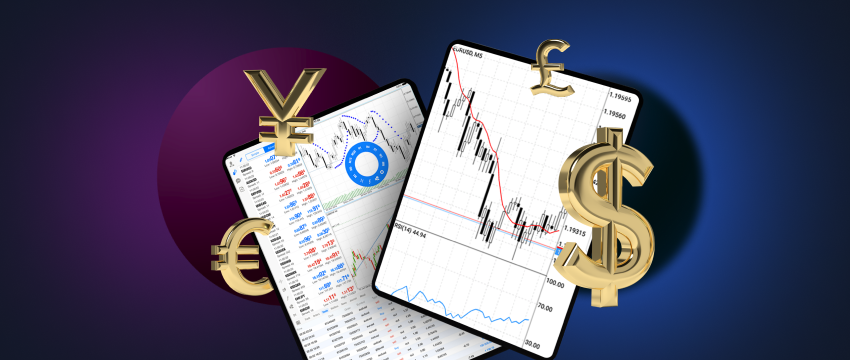
Invest in ongoing learning
Forex currency traders typically strive to learn as much as they can about all aspects of trading. This is done in an attempt to achieve more profitable trading outcomes.
A trader will usually commit a portion of their time to keeping up with new trends, technological advancements, global news, etc. In this way, they widen their scope of knowledge, enhance their skills and capabilities, and apply the information they acquire to their trades.
Traders commonly consume an extensive range of educational resources. This includes blogs, webinars, podcasts, videos, etc. A broker like T4Trade compliments this pool of learning tools with an Economic calendar that traders can use to monitor key news releases and plan their trades accordingly.
Boost skills with a demo trading account
Regardless of how experienced a forex currency trader is, oftentimes they will use a demo trading account to test out different strategies and execute trades in a simulated trading environment, in order to boost their skills. A demo account offers a way for beginner forex currency traders to gain trading expertise using virtual funds, thereby safeguarding their own capital, until they have a good grasp of what currency trading entails.
A professional trader on the other hand can use the demo account to implement strategies of any complexity, measure outcomes, and then apply in live trading if and when required. The demo trading account is also a great way for novice traders to learn how to use a currency trading platform, e.g., Metatrader 4 so that by the time they move to live to trade, they’ll be able to navigate the system quickly and easily.
Understand the importance of a trading plan
A forex currency trader will usually trade according to a well-defined trading plan. This plan is normally created to align with their trading goals, budget, risk tolerance, and time available to trade. The plan is also put in place to help keep the currency trader focused on executing strategic trades, rather than trading on the fly, or driven by greed or fear.
A trading plan also mitigates the risk of chasing after losses or trading excessively and reduces the impact of emotions in making trading decisions.

Currency Trading with T4Trade
T4Trade is a powerful broker with clients across the globe. T4Trade traders enjoy trading in excess of 300 tradeable instruments, including currency pairs, stocks, indices, commodities, and metals. They also have access to different trading accounts, designed to cater to all types of traders worldwide. With T4Trade, traders also enjoy competitive spreads, flexible leverage, quick execution of orders, fast withdrawals, and much more.
An extensive pool of educational resources can also be accessed via the T4Trade Academy, helping to optimize one’s trading experience. T4Trade’s customer support team is also available 24/5 via email or Live Chat to assist traders with any queries they might have or challenges they are facing.
Disclaimer: This material is for general informational and educational purposes only and should not be considered investment advice or an investment recommendation. T4Trade is not responsible for any data provided by third parties referenced or hyperlinked in this communication.
